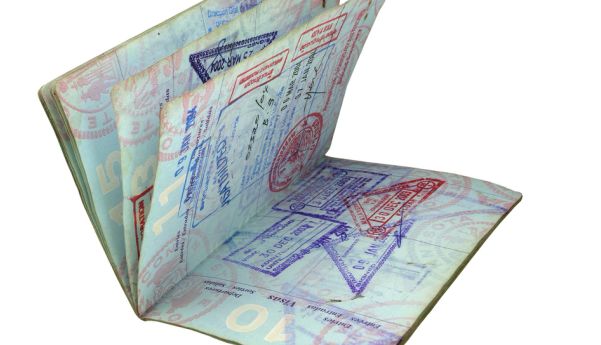Taking a cruise to an exotic or far-flung destination is a bucket-list trip of a lifetime for many people, but when it comes to visa requirements, the situation has become increasingly complex over the years, leaving many in doubt whether they need one or not to visit a particular country or port of call. Here are Jo’s top tips for tackling visas.
1. Do your research
Don’t rely on getting accurate information from cruise lines or travel agents; do your own research based on the passport you’re using, or use a visa agent. Cruise lines place the onus of responsibility for visas onto the passenger, and unfortunately requirements change frequently. So even if you have cruised somewhere before, things may have changed.
2. Check your passport
When it comes to visas, much depends on the type of passport on which you’re travelling and the country of issue. Something everyone should do, however, is check the expiration date, as many countries require people to travel on a passport which is valid for at least six months beyond the date of entry into that country. If need be, renew it early to avoid potential problems.
3. Check with embassies
Some countries waive visa requirements for most cruise passengers but, it’s important to check the specifics for your passport and the destinations on your itinerary with the respective embassy, or engage a visa agent to do it for you. Be mindful that there may be a difference between needing a visa to arrive in that country to join a cruise, for disembarking to go home, and for the destination being a port of call. Also be aware that if you are visiting multiple ports of call in one country with another country in between, you might need to get a multi-entry visa. Be clear with your information so you have the best chance of getting the right answers.
4. Visa on arrival
In some countries, a visa can be issued on arrival, even for passengers on a cruise ship. This is usually a transit visa; the cruise line pays for it during the immigration inspection, then adds the fee to your shipboard account. Be aware, however, that cruise lines often charge extra for this – sometimes double the face value of the visa compared to if you organised it yourself at home. Also, if you obtain any visas independently before you cruise, alert the purser when you board the ship so they don’t process a second visa and charge you for it.
5. Obtaining visas
If you need one or more visas, and decide to organise them yourself, allow plenty of time to get the job done before your departure date. It can take some time to organise with certain countries, and the more visas you need, the more time it will take, including time for sending your passport away if need be.
6. Budgets
Don’t forget to factor the cost of visas into a cruise before you finalise your ticket, as some can cost several hundred dollars. Obtaining visas can also be time consuming, so if you need several and you’re time poor, consider paying a visa agency to get them for you; it can cost up to double the fee, but saves much time and effort. And, finally, if you’re not sure if you need a visa for a particular port of call, get one anyway; it’s not worth being stopped at the gangway and out on visiting the destination.
To find out more about cruising or to find the cruise of your dreams within your budget, visit CruiseGuide.com.au

